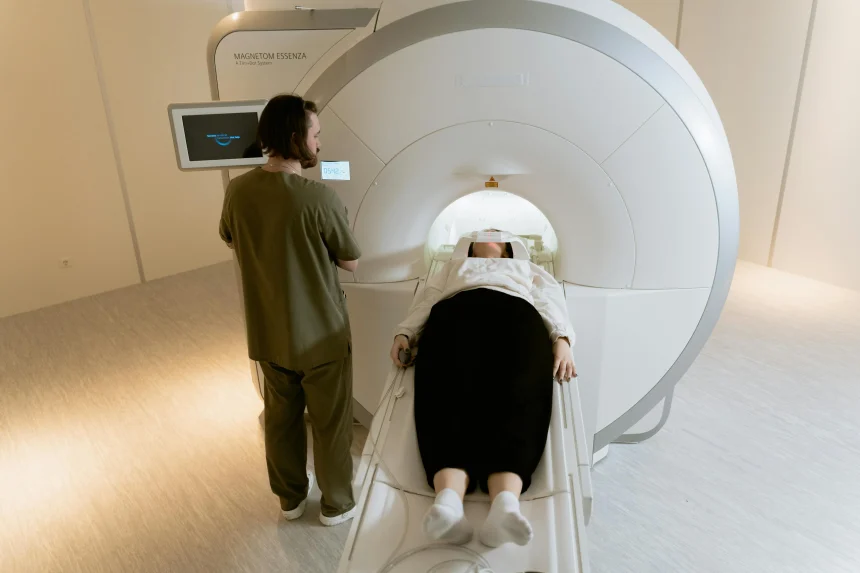Magnetic Resonance Imaging (MRI) technologists play a vital role in modern healthcare, using advanced imaging technology to help diagnose and treat patients. If you’re considering a career as an MRI tech or are curious about the earning potential in this field, understanding the MRI tech salary landscape is essential. This article dives deep into the factors influencing MRI tech salaries, average earnings across the United States, and how you can maximize your income in this rewarding profession. As of March 18, 2025, we’ll explore the latest trends and data to give you a clear picture of what to expect.
What Is an MRI Tech and What Do They Do?
MRI technologists are specialized healthcare professionals who operate MRI scanners to produce detailed images of patients’ internal organs, tissues, and bones. These images assist doctors in diagnosing conditions like tumors, fractures, and neurological disorders. The role requires technical expertise, patient care skills, and a strong understanding of anatomy and imaging technology.
Key Responsibilities of an MRI Tech
- Preparing patients for MRI scans and explaining procedures.
- Operating and maintaining MRI equipment.
- Ensuring patient safety by following strict protocols (e.g., screening for metal implants).
- Collaborating with radiologists to analyze images.
- Maintaining accurate patient records.
The job blends technical precision with interpersonal communication, making it both challenging and fulfilling. But how does this translate into earning potential? Let’s explore the MRI tech salary in detail.
Average MRI Tech Salary in the United States
The MRI tech salary varies depending on location, experience, and workplace setting. According to the U.S. Bureau of Labor Statistics (BLS), the median annual wage for radiologic and MRI technologists was approximately $67,180 as of the latest 2023 data. However, with updated industry trends in 2025, MRI technologists often earn higher than this median due to increasing demand and specialization.
National Salary Range
- Entry-Level MRI Techs: New graduates or those with less than two years of experience can expect to earn between $55,000 and $65,000 annually.
- Mid-Level MRI Techs: With 3-5 years of experience, salaries typically range from $65,000 to $80,000 per year.
- Experienced MRI Techs: Professionals with over 10 years of experience or advanced certifications can command salaries exceeding $90,000, with some reaching $100,000+ in high-demand areas.
Hourly Wages for MRI Techs
Many MRI technologists work hourly, especially in hospitals or imaging centers with shift-based schedules. The average hourly wage ranges from $28 to $40, with overtime opportunities pushing earnings higher. In 2025, top earners in metropolitan areas may see rates as high as $50 per hour.
Factors That Influence MRI Tech Salary
Several variables impact how much an MRI technologist earns. Understanding these can help you strategize your career path to maximize your MRI tech salary.
Geographic Location
Where you work plays a significant role in your earnings. States with higher costs of living or greater demand for healthcare professionals tend to offer higher salaries. For example:
- California: Average salary of $95,000-$110,000 due to high demand and living costs.
- Texas: Around $70,000-$85,000, with growth in urban centers like Houston and Dallas.
- New York: Salaries range from $85,000-$100,000, especially in New York City.
- Rural Areas: Salaries may dip to $60,000-$70,000 due to lower demand and cost of living.
Experience and Education
Experience is a major driver of salary growth. Entry-level techs earn less, but each year of hands-on work boosts your value. Additionally, education matters:
- An Associate’s Degree in Radiologic Technology is the minimum requirement, but a Bachelor’s Degree or specialized MRI certification (e.g., ARRT certification in MRI) can increase your salary by 10-20%.
Work Setting
The type of employer also affects earnings:
- Hospitals: Offer $70,000-$90,000, often with overtime and shift differentials.
- Outpatient Imaging Centers: Pay $65,000-$85,000, with more predictable hours.
- Private Practices: Salaries vary widely ($60,000-$95,000) based on patient volume.
- Travel MRI Techs: Contract-based travel positions can exceed $100,000 annually, including stipends for housing and travel.
How to Boost Your MRI Tech Salary
If you’re aiming to increase your MRI tech salary, there are actionable steps you can take to stand out in this competitive field.
Earn Advanced Certifications
The American Registry of Radiologic Technologists (ARRT) offers an MRI certification that demonstrates expertise. Certified MRI techs often earn 15-25% more than their non-certified peers. Other certifications, like those in CT or mammography, can also diversify your skills and income potential.
Pursue Specialization
Specializing in areas like pediatric MRI, cardiac MRI, or neuroimaging can elevate your salary. These niches require additional training but are in high demand, often paying $90,000 or more annually.
Consider Travel or Per Diem Work
Travel MRI techs are in high demand, especially in underserved areas. Agencies offer contracts with base pay plus perks like housing stipends, pushing total compensation well above traditional roles. Per diem (as-needed) work also offers flexibility and higher hourly rates, sometimes exceeding $45/hour.
Relocate to High-Paying Regions
If you’re willing to move, targeting states like California, Massachusetts, or Hawaii where salaries often exceed $95,000—can significantly boost your earnings. Research job markets and cost-of-living adjustments before making the leap.
Job Outlook and Demand for MRI Techs in 2025
The demand for MRI technologists is growing, which bodes well for salary trends. The BLS projects a 6% growth rate for radiologic and MRI technologists from 2022 to 2032, faster than the average for all occupations. Aging populations and advances in medical imaging technology are driving this need.
Why Demand Is Rising
- Aging Population: Older adults require more diagnostic imaging, increasing the need for MRI techs.
- Technological Advancements: New MRI machines and techniques require skilled operators.
- Healthcare Expansion: New facilities and outpatient centers are hiring more techs.
This growth suggests that MRI tech salary levels will continue to rise, especially for those with specialized skills or flexibility in their work arrangements.
Comparing MRI Tech Salary to Similar Careers
How does an MRI tech’s income stack up against other healthcare roles? Let’s break it down.
MRI Tech vs. Radiologic Technologist
Radiologic technologists (X-ray techs) earn a median of $61,370 annually, slightly less than MRI techs due to the broader scope and lower specialization requirements.
MRI Tech vs. Ultrasound Technician
Ultrasound techs earn around $75,000 on average, competitive with MRI techs but often with less variability in high-end earnings.
MRI Tech vs. Nuclear Medicine Technologist
Nuclear medicine techs, who use radioactive materials for imaging, earn $82,000-$90,000, slightly higher due to the complexity and risks involved. While MRI techs may not top the list, their salaries are competitive, with room for growth through specialization and experience.
Real-World Insights: What MRI Techs Say About Their Salaries
To give you a fuller picture, let’s consider feedback from MRI techs in 2025. Many report satisfaction with their earnings, especially when factoring in job stability and benefits like health insurance and retirement plans.
Testimonials from the Field
Sarah, California: “With five years of experience and an ARRT certification, I’m making $98,000 a year in San Diego. The cost of living is high, but the pay makes it worth it.”
Mike, Texas: “As a travel MRI tech, I cleared $110,000 last year. The flexibility and stipends are unbeatable.”
Emily, Ohio: “Starting out, I made $58,000, but after two years and a certification, I’m up to $72,000.”
These stories highlight how location, experience, and career choices shape earnings.
Final Thoughts on MRI Tech Salary in 2025
The MRI tech salary offers a promising outlook for those entering or advancing in this field. With an average range of $65,000 to $90,000—and potential to exceed $100,000 with the right moves—it’s a career that rewards dedication and skill. Whether you’re drawn to the technical challenge, patient interaction, or financial stability, becoming an MRI technologist can be a smart choice.





